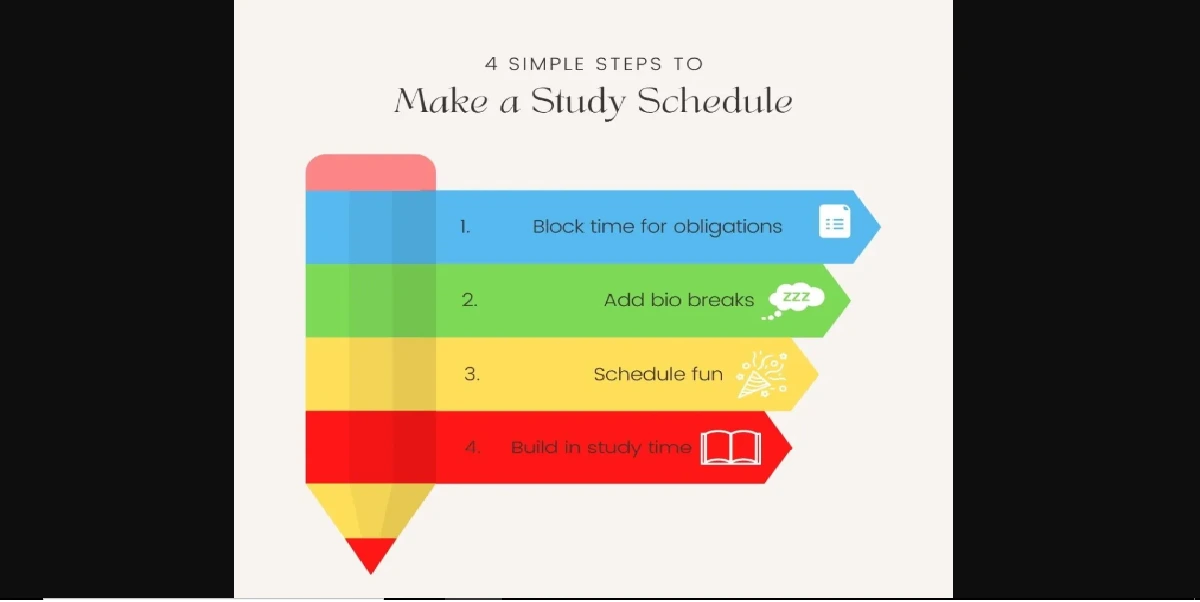Imagine your brain as a battery. You have only so much juice per day. A planner keeps you spending the energy in the right places, not rushing at the last minute and draining your brain.
Who Needs a Study Plan?

Whether you’re in high school, college, or a competitive exam aspirer, everyone can benefit from organization. A study plan is Google Maps for your studies.
Understanding Your Goals and Priorities
Define Your Academic Goals
Begin with the ultimate question: What do you want to accomplish? Do you want straight A’s, pass an entrance exam, or conquer a difficult topic? Your goals determine your game plan.
Short-term vs Long-term Planning
Daily quizzes require a different strategy than end-of-year exams. Ensure your calendar has a combination of quick wins and long-term concentration.
Analyze Your Current Routine
Time Tracking for One Week
Before you create a study timetable, know where your time really goes. Keep a journal or app to monitor your daily habits for a week.
Identifying Time Wasters
Binges on Netflix, scrolling indefinitely, or gaming sessions—recognize them and substitute them with productive time slots. Don’t eliminate fun—just balance it.
Selecting the Right Tools
Digital Tools
Google Calendar: Excellent for visual scheduling.
Notion: Ideal for tailoring your study dashboard.
My Study Life: Designed for students, monitors homework and classes.
Traditional Tools
Don’t discount pen and paper. Wall planners and sticky notes still work great for visual learners and easy reference.
Core Time Management Principles
The Pomodoro Technique
Learn for 25 minutes, break for 5 minutes. Wash, rinse, repeat. It conditions your brain to concentrate and prevent burnout.
80/20 Rule (Pareto Principle)
Work on the 20% of topics that affect 80% of your output. Prioritize intelligently.
Constructing Your Weekly Study Schedule
Divide Subjects by Level of Difficulty
Challenging topics require more energy. Put them during your best hours—typically mornings.
Schedule Time Blocks
Rather than studying all subjects daily, concentrate on 2–3 topics per day in more extended, concentrated sessions.
Apply Active Recall and Spaced Repetition
Don’t simply read over notes. Quiz yourself, make flashcards, and review topics every now and then for improved retention.
Study Routine Hacks for Every Day
Optimal Study Times
Morning (6–10 AM): Brain is fresh, ideal for challenging subjects.
Afternoon (1–4 PM): Well-suited for minor revision or creative work.
Evening (7–9 PM): Best suited for review sessions.
Importance of Breaks
Your brain is not a computer. Take breaks to stretch, sleep, or go for a short walk. It recharges your concentration.
Study Schedule Template
Time Activity
6:30 AM Wake Up + Gentle Exercise
7:00–9:00 AM Study Session 1 (Difficulty Topic)
9:00–9:30 AM Breakfast + Short Break
10:00–12:00 Study Session 2 (Medium Topic)
12:00–1:00 PM Lunch + Relaxation
2:00–3:30 PM Revision or Practice Tests
4:00–5:00 PM Hobbies/Leisure Time
6:00–7:00 PM Gentle Review + Planning
Conclusion: Crafting the ideal study schedule isn’t about being perfect—it’s about making progress. Make a plan that suits you, adhere to it (most of the time), and treat yourself kindly when life gets in the way. Achievement is a string of little, intelligent choices. So take your calendar, begin planning, and go acing that test!






